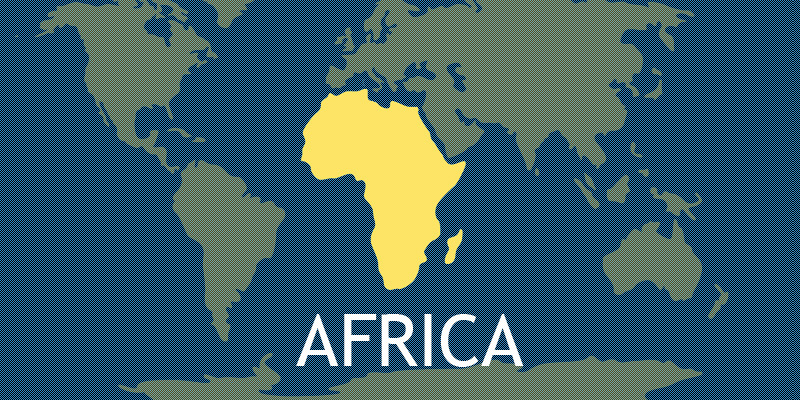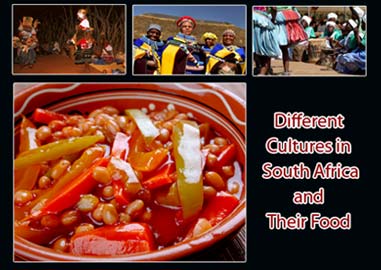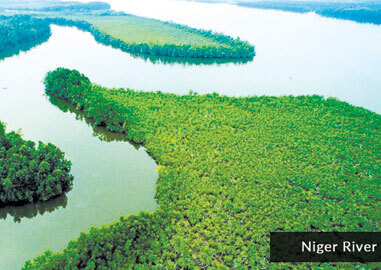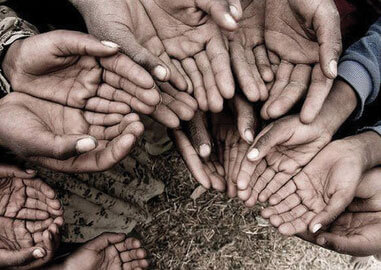How Big Is The Continent Of Africa?
Posted By Karim
Have you ever wondered how big the continent of Africa is? Or how many countries are in Africa? This blog post will answer those questions and more. We'll look at Africa's size, the population of African countries, and some other interesting facts about this vast continent. So, sit back and learn about Africa!
So let's start from who founded africa?
Who Found Africa?
No one person or group can be credited with "finding" Africa. The continent has a long and rich history dating back thousands of years, with various civilizations and kingdoms developing and interacting over time.
Even the concept of "discovery" is problematic as it implies a sense of ownership over land and ignores the presence and contributions of indigenous peoples living in Africa before European exploration and colonization.
So instead of focusing on who "found" Africa, we can acknowledge the diverse origins and histories of its many communities, cultures, and nations. It is a place constantly shaped by its inhabitants throughout the ages rather than being discovered by any person or group.
What was Africa original name?
Scholars debate the origins of the word "Africa," but it is generally believed to have come from the Roman or Phoenician term "afri," meaning " dust" or " ashes." It was likely first used to refer to the area known as North Africa, inhabited by the Afri people.
Over time, the term "Africa" applied to the entire continent. It is also worth noting that many African countries and regions have their unique names and identities that pre-date the use of "Africa." These include well-known examples such as Egypt (Kemet), Ghana (Wagadugu), and Ethiopia (Abyssinia).
So while "Africa" may be the commonly used and recognized term for the continent, it is important to acknowledge and respect the diverse origins and identities of its many nations and peoples.
How big is the continent of africa?
The size of Africa is often underestimated:
It is the second largest continent in the world, with a size of 11,724,000 square miles (30,365,000 sq km). This makes it almost twice the size of Europe and three times the size of the United States.
Africa has 54 recognized sovereign states, making it the second most populous continent after Asia. The population of Africa is estimated to be 1.216 billion as of 2016, with Nigeria being the most populous country with over 191 million people.
Some other interesting facts about Africa: It is home to the world's longest river (the Nile), the largest desert (the Sahara), and the biggest waterfall (Victoria Falls). The official language spoken in most African countries is Arabic, followed by English and French. The continent also has vast natural resources, including diamonds, gold, oil, and copper.
So there you have it - some interesting facts about the size, population, and other information about Africa. Have any additional questions or want to learn more?
How many countries are in Africa?
There are 54 recognized sovereign states in Africa. However, there is some debate over which countries should be considered part of the continent, as there are a few disputed territories and partially recognized states. In total, including all disputed areas, there could be anywhere from 55 to 57 countries in Africa.
How rich is the continent of Africa?
Africa is considered to be the second-wealthiest continent in terms of natural resources. It has vast reserves of diamonds, gold, oil, and copper. However, there is significant inequality in wealth distribution within Africa, with some countries experiencing extreme poverty while others have thriving economies. The continent's GDP was estimated at $2.58 trillion in 2016.
What are the major religions in Africa?
The majority of people in Africa practice Christianity or Islam, with approximately 40% adhering to each religion. Traditional African religions and other smaller faiths make up the remaining 20%. Within these major religious groups, there is a wide diversity of beliefs and practices among different regions and countries.
How big is Africa compared to Europe?
Africa is much larger than Europe, with a total land area of approximately 30.2 million square kilometers compared to Europe's 10.2 million square kilometers. However, Africa has a lower GDP overall than Europe because of its high population density and uneven distribution of resources.
But despite this, Africa is home to a diverse range of cultures and natural landscapes and has vast potential for economic growth in the future. It is also home to the world's fastest-growing economy, Ethiopia.
So while it may not currently match up to Europe in terms of GDP and development, the continent of Africa should be considered in terms of its size and potential impact on the global economy.
Which Country Is Bigger Than Africa?
Many assume that Africa is the largest continent on earth, but this is not true. In terms of landmass, Asia takes the title as the largest continent, covering an area of 17,212,000 square miles. Africa comes in second with 11,724,000 square miles.
But why does this misconception exist? It could be because Africa appears larger on maps due to its elongated shape and lack of visible borders. However, Asia tops the charts when it comes down to sheer size.
So which country within Asia trumps all others in terms of size? That honor goes to China, with an impressive 3,696,100 square miles. In comparison, the largest country in Africa is Algeria with just 919,595 square miles.
So next time you're asked about the size of continents or countries, remember that Asia takes the crown as the largest on earth.
And while Africa may not be the biggest continent, it is still home to a diverse array of cultures and landscapes, making it a unique and fascinating place to explore.
Why was Africa called the Dark continent?
European explorers and imperialists initially used the term "Dark Continent" to describe Africa as a place full of unknown and potentially dangerous territories. It also had connotations of being uncivilized or primitive.
However, the term has since been rejected by many as it perpetuates negative stereotypes about Africa and overlooks its rich history and culture. The continent has faced challenges such as colonialism and poverty, but it is also home to thriving communities, economies, and civilizations.
So instead of referring to Africa as the "Dark Continent," we can choose to see it as a vibrant and diverse land with a complex past and a bright future.
What was Africa called in the Bible?
In the Bible, Africa is called "Cush" or "Ethiopia." However, these terms were used in a broad sense and did not necessarily refer to the entire continent. Cush was believed to be an ancient kingdom in what is now Sudan, while Ethiopia was a region that encompassed parts of modern-day Sudan, Eritrea, and Ethiopia.
It's important to note that the biblical references to Cush and Ethiopia were also influenced by the limited geographical knowledge at the time and are not necessarily reflective of present-day understandings of African geography and nations.
Africa Continents - Latest Articles

Different Cultures in South Africa and Their Food
Posted By IsaacLocated on the southern most tip of the world�s second largest continent, South Africa is a...

Rivers in Africa Continent by Length and Size
Posted By MariaAfrica - the world's second largest and second most populous continent - is a land of rivers...

Reasons of Poverty in Africa and Solutions
Posted By MariaAfrica is known to be the second largest and the second most populous continent in the...
